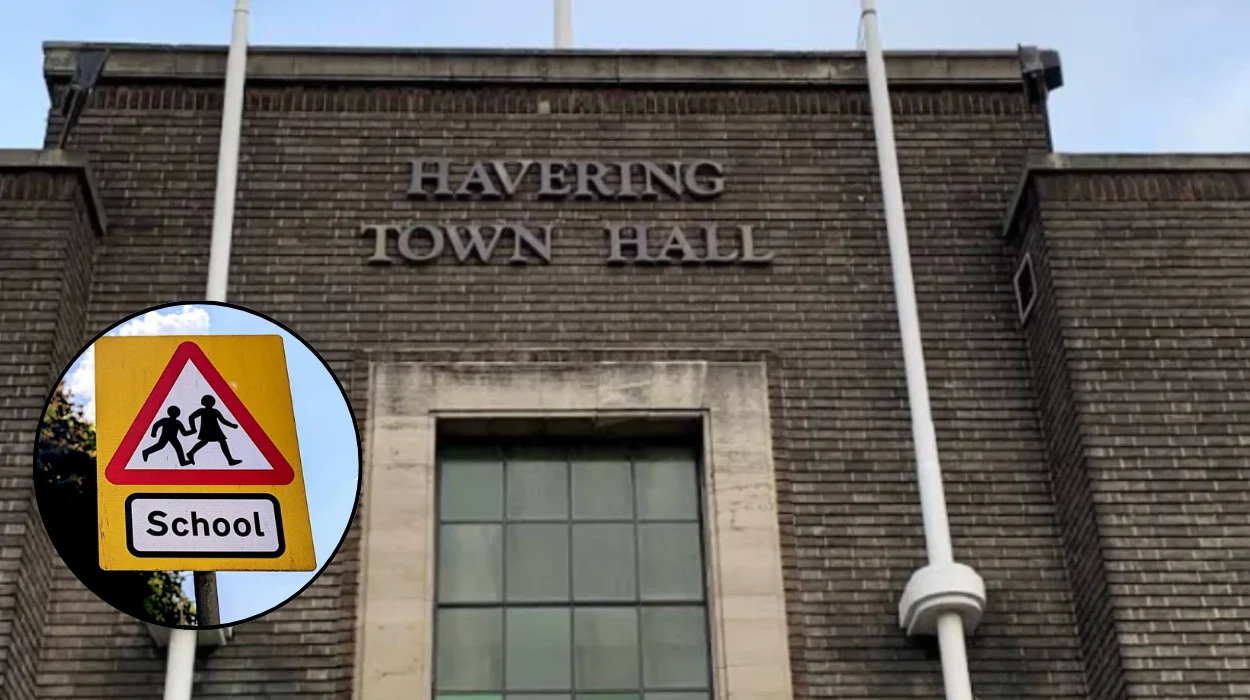Key Points:
- Havering Council’s place overview and scrutiny sub-committee to review school streets, HMOs, food waste services, and active travel strategies on November 4.
- Focus on the number of licensed and unlicensed HMOs with mapping by ward, response to consultations, and enforcement actions.
- The school streets programme now covers 15 zones, 21 schools, and over 50 streets, with a majority of parents feeling safer but experiencing increased congestion.
- The sub-committee is expected to endorse continuing the school streets initiative.
- Additional topics include updates on food waste services and active travel strategies.
- The security environment in Pakistan’s key business hubs, Karachi and Lahore, has reportedly improved in 2025, with declines in major crimes, according to the Overseas Investors Chamber of Commerce and Industry (OICCI).
- The report highlights a decline in serious crimes and street crimes, but Balochistan’s security situation remains precarious.
- News from other sources underlines ongoing regional political and economic issues, including international trade talks, security incidents, and urban development projects.
What issues will Havering Council’s scrutiny focus on in November 2025?
Havering Council’s place overview and scrutiny sub-committee has scheduled a meeting on November 4 at 7 pm to review several pressing local issues, primarily focusing on the regulation of Houses in Multiple Occupation (HMOs) and the ongoing school streets programme. The meeting aims to evaluate the current status of licensed and unlicensed HMOs in the borough, along with enforcement responses and mapping initiatives by ward. Additionally, authorities will delve into the expansion, safety, and congestion impacts of their school streets initiative, which now covers 15 zones serving 21 schools and more than 50 streets.
- Key Points:
- What issues will Havering Council’s scrutiny focus on in November 2025?
- How is the regulation of HMOs being addressed, and what are the concerns?
- What is the current status of Havering’s school streets programme?
- What other issues are on the agenda for Havering’s November 4 meeting?
- What does recent data say about regional security and urban development?
- What are the implications for residents and stakeholders?
How is the regulation of HMOs being addressed, and what are the concerns?
The issue of HMOs has gained heightened attention following a request from sub-committee members for an update on local regulations. Currently, a public list of licensed HMOs is available online, but councillors aim to cross-reference this data with ward-level maps to identify unlicensed properties. As reported by the Romford Recorder, the council hopes to improve enforcement actions against suspected unlicensed HMOs, aiming to tighten regulations and improve housing standards.
This scrutiny follows community concerns regarding illegal HMOs, which can contribute to problematic occupancy rates, unauthorised modifications, and potential nuisance issues. The council is set to review responses to ongoing consultations, assess enforcement metrics, and consider the impact of unlicensed properties on local neighbourhoods.
What is the current status of Havering’s school streets programme?
Havering’s school streets programme has experienced notable growth, with 15 zones now established across the borough, benefiting 21 schools and over 50 streets. A recent council report highlighted that a survey of parents showed a 66% feeling of increased safety for children walking to school. However, an accompanying concern emerged: approximately 60% of parents reported that surrounding streets have become more congested during drop-off and pick-up times.
The programme’s primary goal is to improve safety by restricting vehicle access during school start and end times, encouraging walking and cycling. The review is expected to recommend the continuation of the initiative, ensuring that all eligible schools in the borough can benefit from this scheme, balancing safety with traffic flow.
What other issues are on the agenda for Havering’s November 4 meeting?
Aside from housing and school zones, the committee will review the borough’s food waste service update, aiming to enhance waste management and recycling efforts. An active travel strategy consultation will also be discussed, focusing on promoting sustainable movement options such as cycling, walking, and public transport, in line with environmental policies and health initiatives.
What does recent data say about regional security and urban development?
In a broader regional context, recent reports indicate that security in Pakistan’s major business hubs, notably Karachi and Lahore, has improved in 2025. As reported by the Pakistan-based Dawn News, the Overseas Investors Chamber of Commerce and Industry (OICCI) observed a significant decline in crime levels and improved safety perceptions among employees in these cities. The report highlights reductions in both street crimes and major offences, though the security situation remains fragile in Balochistan. The ongoing insurgency and militant activities in parts of Khyber Pakhtunkhwa and Balochistan continue to pose challenges.
In the United Kingdom, urban development projects and security enhancements are ongoing, particularly in London boroughs such as Havering. Local authorities are increasingly focused on sustainability, traffic safety, and housing regulation, with implementing measures like school streets and HMO regulations. These are part of broader efforts to improve urban living standards amid growth pressure and environmental concerns.
What are the implications for residents and stakeholders?
The upcoming Havering Council meeting underscores a proactive approach to addressing local issues affecting daily life, from housing quality and safety to environmental sustainability. For residents, these reviews promise stricter regulation of HMOs, safer and less congested school zones, and more efficient waste management. Stakeholders, including local businesses and community groups, will be watching outcomes closely, particularly regarding enforcement actions and programme continuations.
Nationally, the positive security trend in Pakistan suggests stabilisation in key economic zones, providing reassurance for foreign investors and businesses. Meanwhile, ongoing regional conflicts and security concerns continue to influence investment and safety.
The Havering Council’s scrutiny on November 4 aims to balance safety, regulation, and community wellbeing. The focus on HMOs and school streets reflects broader trends in urban management, with the intention of creating safer, more sustainable, and better-regulated neighbourhoods. Regional security improvements in Pakistan bolster economic confidence, yet challenges persist in volatile areas. As local and regional issues intertwine, the importance of comprehensive oversight becomes evident in shaping resilient, vibrant communities.



